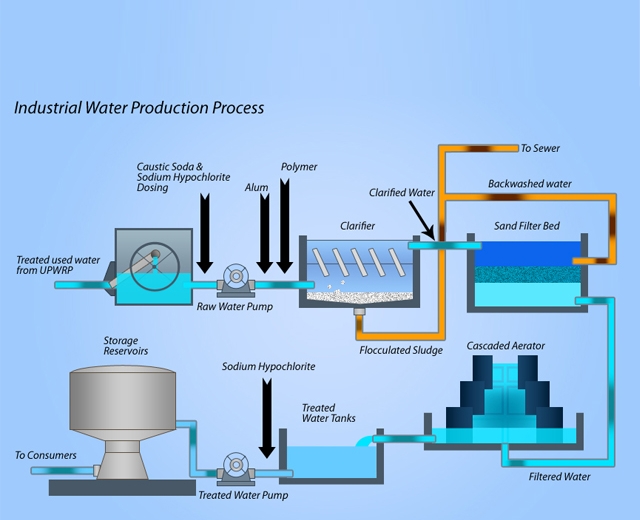Boost Your Home's Water Quality with a Water Purification System
Wiki Article
Why a Water Purification System Is Crucial for Tidy, Safe Water
Access to tidy, risk-free water is an essential human right and a keystone of public wellness. A water filtration system stands as an important solution to alleviate these threats, ensuring that neighborhoods and people can access secure drinking water.Significance of Clean Water
Accessibility to clean water is a basic need for human health and well-being. Polluted water can lead to significant health and wellness concerns, consisting of gastrointestinal ailments, cholera, and dysentery, particularly in susceptible populaces such as children and the elderly.Additionally, tidy water is essential for sanitation and hygiene practices, which are vital in preventing the spread of infectious diseases. Sufficient water system supports correct sanitation facilities, promoting a healthier setting. Furthermore, access to risk-free water influences socioeconomic variables, as it enables neighborhoods to involve in commercial and agricultural tasks, ultimately contributing to financial growth.
In many regions, the lack of clean water aggravates poverty and inequality, more hindering progress toward lasting development goals. Making sure access to clean water is not just a public health and wellness vital but also a keystone for social equity and financial development. Initiatives to boost water top quality and facilities have significant benefits, fostering much healthier areas and enhancing lifestyle.

Common Contaminants in Water
Guaranteeing the schedule of tidy water is undermined by different impurities that can jeopardize its security and top quality. The existence of pathogens, such as parasites, microorganisms, and infections, presents substantial health risks, particularly in locations doing not have ample hygiene. These bacteria can lead to waterborne illness, causing extreme illness or also death.Chemical impurities likewise present a vital worry. Heavy metals, consisting of mercury, lead, and arsenic, frequently go into water products with commercial discharges or corroded plumbing. These materials can build up in the body over time, bring about long-lasting wellness problems such as neurological damages and developmental problems.
Additionally, farming runoff introduces chemicals and fertilizers right into water systems, which can interrupt environments and negatively impact human health. Nitrates, generally found in fertilizers, can create serious problems like methemoglobinemia, specifically in infants.
Benefits of Water Filtration Systems
Recognizing the important requirement for risk-free alcohol consumption water, water purification systems use a myriad of advantages that enhance public wellness and ecological sustainability. Primarily, these systems properly eliminate unsafe contaminants, including bacteria, viruses, hefty metals, and chemicals, ensuring that the water eaten is totally free from virus and pollutants. This decrease in contaminants dramatically decreases the threat of waterborne diseases, promoting overall community health.In enhancement to health and wellness advantages, water purification systems add to environmental sustainability by lowering dependence on bottled water, which often creates extreme plastic waste. By making use of a purification system, homes can reduce their carbon impact and contribute to a much more lasting community. Furthermore, these systems can enhance the preference and smell of water, making it a lot more tasty for daily consumption.

Various Kinds of Purification Approaches

One usual method is reverse osmosis, which utilizes a semi-permeable membrane to separate water from liquified solids and contaminants. This procedure successfully lowers impurities, consisting of hefty steels and chemicals. One more commonly used technique is ultraviolet (UV) sanitation, which employs UV light to counteract infections and bacteria, making them harmless without making use of chemicals.
Triggered carbon filtration is one more preferred approach, using carbon to adsorb natural compounds, chlorine, and undesirable odors, boosting preference and odor top quality. Purification, a procedure that involves boiling water and condensing the vapor, efficiently gets rid of impurities and minerals however might call for even more power compared to various other techniques.
Ion exchange is often utilized to soften water by changing calcium and magnesium ions with sodium or potassium ions. Each method has its benefits and constraints, making it necessary to comprehend their functionalities and efficiency in attending to specific water quality problems - Water Purification System. Ultimately, picking the appropriate purification approach is Check Out Your URL essential for guaranteeing tidy and original site safe alcohol consumption water
Selecting the Right System
Selecting a proper water purification system needs careful factor to consider of various elements, consisting of the particular contaminants present in the supply of water, the quantity of water required, and the desired purification method. It is critical to conduct a water quality examination to determine impurities such as microorganisms, hefty metals, or chemical contaminants. This info will certainly lead you in picking a system that effectively targets those certain impurities.
Following, analyze your home's everyday water intake to determine the system's capacity. Equipments are available in different sizes, from point-of-use filters for alcohol consumption water to whole-house devices that cleanse all water entering your home.
Moreover, take into consideration the purification method that finest fits your needs. For example, reverse osmosis is extremely efficient for eliminating a wide variety of pollutants, while UV purification is outstanding for removing microbes.
Verdict
In conclusion, the execution of water purification systems is critical for guaranteeing accessibility to tidy and secure water. By recognizing the relevance of tidy water and the advantages of various purification techniques, areas can make informed choices to safeguard their health and wellness and advertise socioeconomic stability.Recognizing the essential demand for risk-free drinking water, water filtration systems offer a myriad of benefits that enhance public health and wellness and environmental sustainability.In addition to health advantages, water purification systems contribute to ecological sustainability by lowering dependence on bottled water, which typically generates extreme plastic waste. Ultimately, the fostering of water filtration systems is a proactive step toward ensuring tidy, safe water for future generations while safeguarding public health and the setting.
Selecting a proper water purification system needs careful factor to consider of numerous elements, consisting of the particular contaminants present in the water supply, the volume of water required, and the preferred purification approach.In conclusion, the application of water filtration systems is vital for guaranteeing access to tidy and secure water.
Report this wiki page